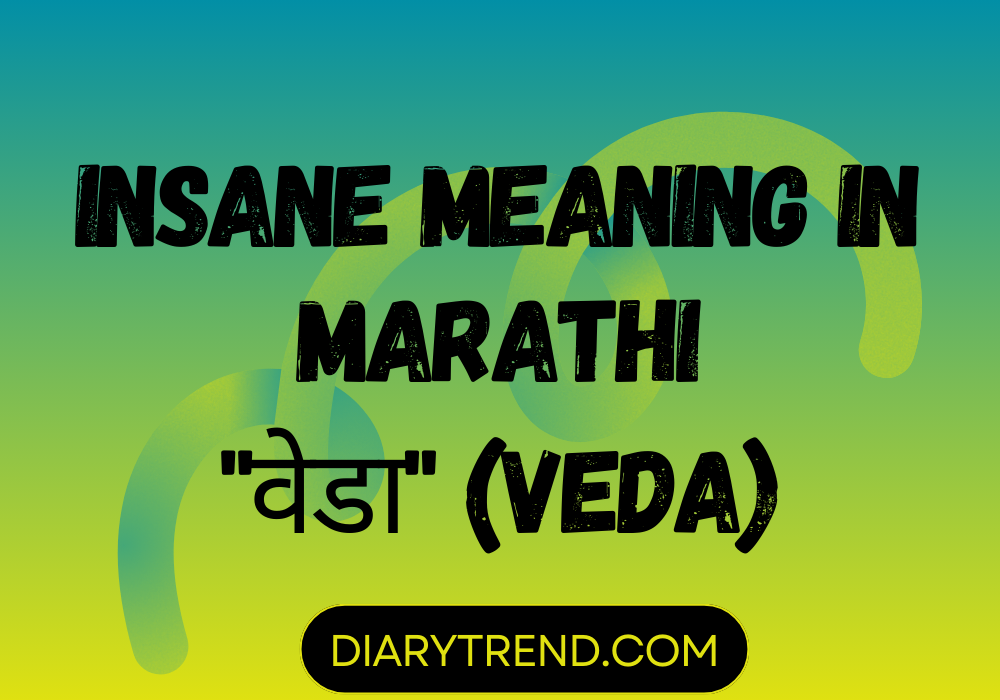The Marathi term “वेडा” (veda) translates to “insane” in English, encapsulating a range of meanings from literal mental instability to colloquial expressions of disbelief, astonishment, or eccentric behavior. This article delves into the multifaceted nature of “वेडा”, exploring its linguistic roots, cultural connotations, and the delicate balance between colloquial usage and the need for sensitivity towards mental health.
Linguistic Roots and Meanings
In Marathi, “वेडा” is a word that captures the essence of what is considered outside the realm of normal behavior or thought. Its linguistic roots can be traced back to ancient texts, where it was often used to describe individuals who deviated from societal norms, either due to their actions or their thoughts. Over time, the term evolved to encompass a broad spectrum of meanings, ranging from mild eccentricity to severe mental illness.
Cultural Connotations and Usage
The cultural implications of “वेडा” are as diverse as the Marathi-speaking population itself. In casual conversation, it’s often used to express disbelief or amazement, as in “तु खरच वेडा आहेस का?” (“Are you really insane?”) when someone does something unexpected or extraordinary. This usage reflects a more light-hearted, even affectionate tone, where the term is stripped of its harsher implications.
However, “वेडा” can also carry a more serious connotation, particularly when referring to mental health issues. In this context, the word might be seen as stigmatizing or insensitive, reflecting a need for greater awareness and understanding of mental health in society. The challenge lies in navigating the fine line between colloquial usage and the potential for reinforcing negative stereotypes or causing harm.
The Intersection with Mental Health Awareness
As awareness and understanding of mental health issues continue to grow, the conversation around terms like “वेडा” is evolving. There’s an increasing recognition of the importance of language in shaping our perceptions of mental health and the people affected by mental health conditions. Advocates for mental health awareness in the Marathi-speaking community emphasize the need for more empathetic, informed language that respects the dignity of individuals dealing with mental health challenges.
Reclaiming and Redefining “वेडा”
Some within the community are working to reclaim or redefine “वेडा”, turning it into a term of empowerment rather than one of disparagement. This involves highlighting the creativity, uniqueness, and strengths of individuals who might once have been labeled “वेडा” in a negative context. By celebrating the diversity of human experience and expression, there’s an opportunity to transform the term into one that acknowledges difference without judgment.
Conclusion
The word “वेडा” embodies a complex interplay of language, culture, and societal attitudes toward mental health and eccentricity. Its meanings are as varied as the contexts in which it is used, reflecting the dynamic nature of language and the evolving understanding of mental health. As the Marathi-speaking community continues to grapple with these issues, “वेडा” serves as a reminder of the power of words to both harm and heal, to stigmatize and to celebrate. The future of “वेडा” lies in its ongoing redefinition, shaped by a growing awareness of the need for compassion, understanding, and respect for all aspects of human behavior and experience.
